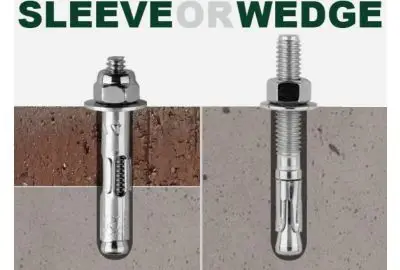Manufacturers of Custom Specialty Flat Washers for Various Industrial Applications
Dec . 11, 2024 06:18 Back to list
Manufacturers of Custom Specialty Flat Washers for Various Industrial Applications
Understanding Special Flat Washers Factories and Their Importance
In the realm of mechanical engineering and manufacturing, every component counts. Among these components, flat washers play a crucial role that often goes unnoticed. These simple yet essential items are vital in various industrial applications, ensuring that assemblies perform reliably under various conditions. This article aims to delve into the world of special flat washers and the factories that specialize in their production.
What Are Special Flat Washers?
Flat washers are thin discs, typically made from metal or plastic, with a hole in the middle. They are used to distribute the load of a threaded fastener, such as a screw, nut, or bolt. While standard flat washers serve general purposes, special flat washers are custom-designed to meet specific operational requirements. These special washers can vary in size, thickness, shape, and material, depending on their intended application.
Special flat washers are often manufactured to withstand particular environmental conditions, such as high temperatures, corrosive chemicals, or extreme pressure. Factories that specialize in making these washers possess the capability to adapt their production processes to meet the diverse needs of various industries, including automotive, aerospace, construction, and electronics.
The Manufacturing Process
The manufacturing process for special flat washers involves several steps to ensure precision and quality. This typically begins with selecting the right materials. Depending on the application, manufacturers can choose from a variety of materials such as stainless steel, carbon steel, brass, or plastic. Each material has its own set of properties, making it suitable for different environments and applications.
Once the material is selected, the next step is cutting it into the desired shape and size. This process can involve stamping, laser cutting, or machining. Factories equipped with advanced machinery can create intricate designs and high tolerances to ensure that special flat washers meet the stringent requirements of their applications.
After cutting, the washers usually undergo finishing processes such as deburring, surface treatment, or coating. These steps enhance the washer’s performance, providing resistance to corrosion, wear, and heat. For instance, in the automotive industry, washers may be coated to prevent rust and extend their lifecycle.
special flat washers factories

Quality Control in Washer Factories
In industries where safety and reliability are paramount, quality control plays an indispensable role in manufacturing special flat washers. Factories employ stringent quality assurance protocols to ensure that each washer meets the standards set forth by regulatory bodies and client specifications. This may include thorough inspections, tolerance checks, and sometimes even fatigue testing under extreme conditions.
Adopting quality management systems, such as ISO 9001, can help factories enhance their manufacturing processes, reduce defects, and improve customer satisfaction. The reputation of a factory often hinges on its adherence to these quality standards, as even the smallest imperfection in a washer can lead to significant failures in larger assemblies.
The Role of Technology
As the manufacturing landscape evolves, technology has become a significant driver of efficiency and innovation in washer factories. Modern factories are increasingly integrating automation and advanced manufacturing technologies, such as Computer Numerical Control (CNC) machining and 3D printing. These technologies allow for greater precision, lower production costs, and even faster turnaround times.
For instance, CNC machines can produce washers of varying sizes with extremely tight tolerances, which is essential for applications in high-performance industries like aerospace. Meanwhile, 3D printing offers the potential for rapid prototyping, allowing manufacturers to test and iterate on designs before committing to large production runs.
The Future of Special Flat Washers
As industries continue to innovate, the demand for specialized components, including flat washers, will likely grow. Engineers are constantly seeking ways to enhance performance in their designs, leading to the development of more advanced washer types with tailored features. Additionally, the push for sustainability is reshaping manufacturing processes, encouraging factories to consider eco-friendly materials and practices.
In conclusion, special flat washers represent a small but vital component within various industries. The factories that produce these washers are integral to ensuring that the components meet the required standards for safety, durability, and performance. As technology continues to advance and demands change, these factories will remain at the forefront of innovation and quality, underscoring the significance of their role in modern manufacturing.
Latest news
-
High-Quality Panel Stud Bolt Reliable Panel Stud Bolt Factory & Suppliers
NewsJul.08,2025
-
High-Precision Fine Thread Locknuts Manufacturer & Supplier Custom Solutions
NewsJul.08,2025
-
PH Imperial Stud Bolt – High Strength Fasteners from Leading Supplier & Factory
NewsJul.07,2025
-
High-Quality Allen Wrench Bolts Leading Factory, Company & Suppliers
NewsJul.07,2025
-
Wholesale Ball Stud Bolt - High Quality Supplier & Factory Price Reliable Wholesale Ball Stud Bolt Company
NewsJul.06,2025
-
High-Strength Alloy Bolts Manufacturer & Supplier Quality Alloy Fasteners Factory
NewsJul.06,2025
